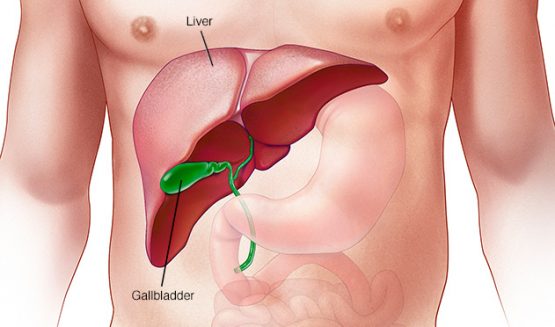Healthy lifestyle remains the best defense against non-alcoholic liver disease
Do you know that you or a loved one may suffer from non-alcoholic fatty liver disease (NAFLD)? You may not have heard of such disease — but NAFLD has become the most common cause of chronic liver disease in the United States, slowly making its way as the next global epidemic.
NAFLD, also called non-alcoholic steatohepatitis or NASH, is caused by the accumulation of an unhealthy amount of fat and scar tissue in the liver. With the prevalence of obesity and type-2 diabetes, which are key risk factors of this liver disease, NAFLD is reaching epidemic proportions across the globe. In fact, in the United States alone, NAFLD is projected to overtake hepatitis C as the leading cause of liver transplants in by 2020.

Photo Credit: Mayo Clinic
But why do we rarely hear of this disease? It might be because NAFLD is a stealthy type of liver disease that has no obvious symptoms in most people. However, some people may experience fatigue and pain in the upper right abdomen. Unlike hypertension and diabetes, there is no easy test to diagnose NASH. The only reliable measure of fibrosis is a liver biopsy.
At present, no drug has been approved to treat NAFLD. Even with the heavy interest of pharmaceutical companies to produce a drug for NAFLD, there is still a long way to go. The current treatment approach is to deal with the three stages of the disease progression: fat accumulation, inflammation, and liver fibrosis. Liver health specialists believe that reversing the course of the disease will take a combination of drugs.
With the future of an NAFLD drug still in the works, doctors can only recommend patients to commit to positive lifestyle changes that include: a healthier diet, engaging in regular exercise, and reducing their alcohol consumption. However, as studies have revealed, many of their patients find it very challenging to stick to healthier regime. That and the fact that majority of obese and diabetic people are not fit for liver transplant, liver health specialists continue to stress the urgency of developing effective drugs for NAFLD, as well as creating a more efficient test to detect the disease on its early phase.
Prevention is definitely better than the non-existent cure for NAFLD. Urge family and friends to observe healthier daily habits — and of course, to: SCREEN. VACCINATE. DON’T HESTITATE!
To learn more about the symptoms, diagnosis, and management of NAFLD, click here
For more information about current drug research on NAFLD, click here






























